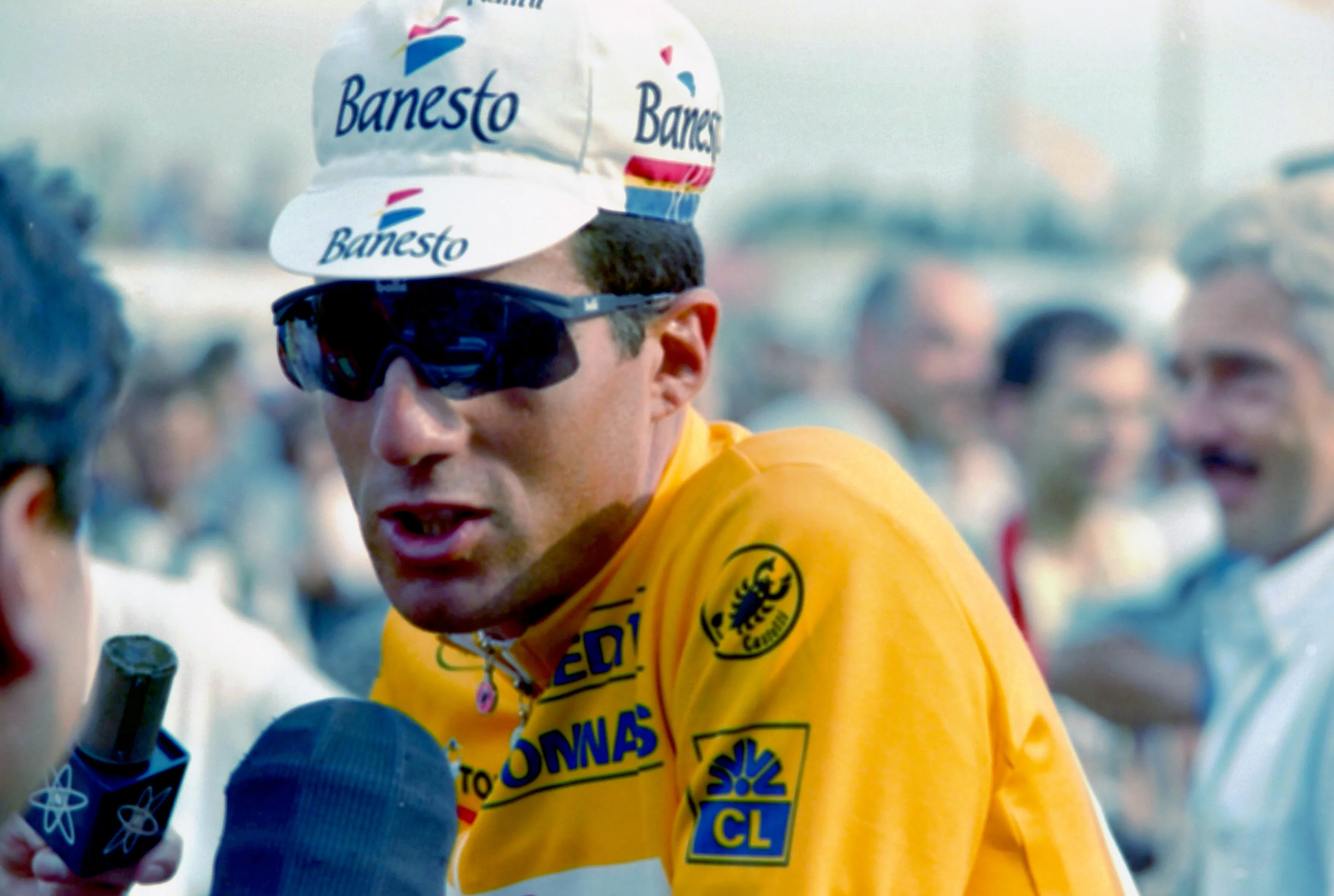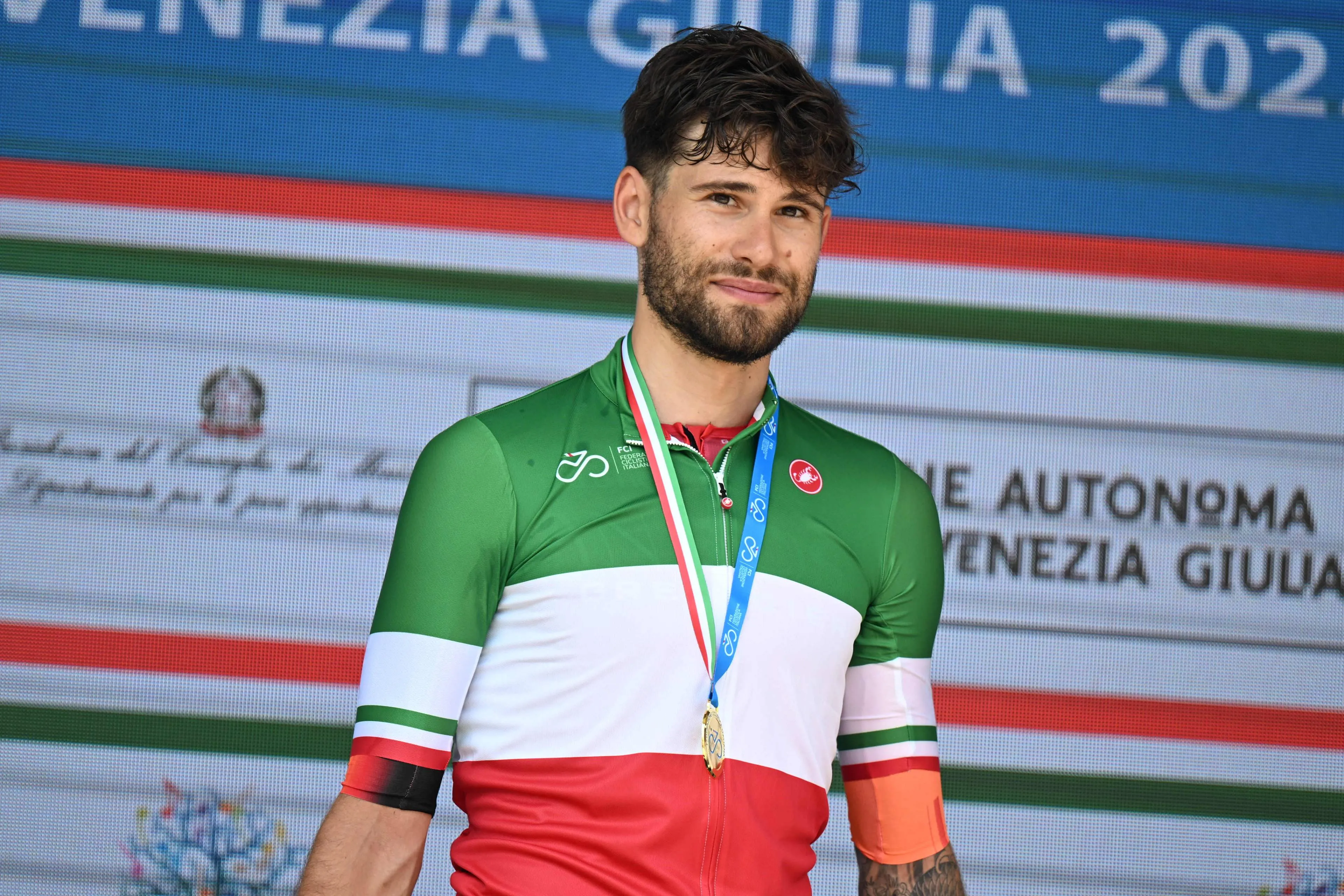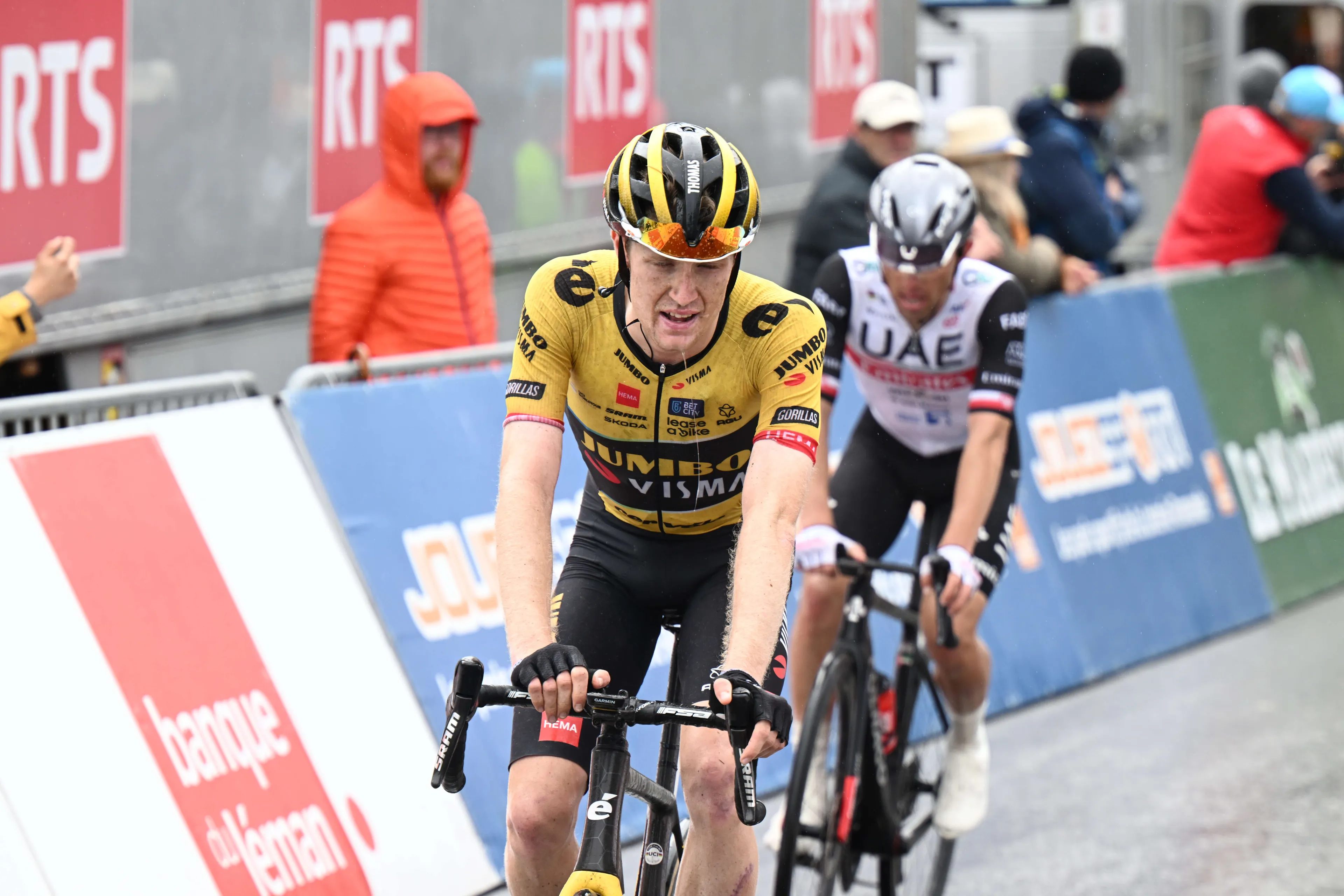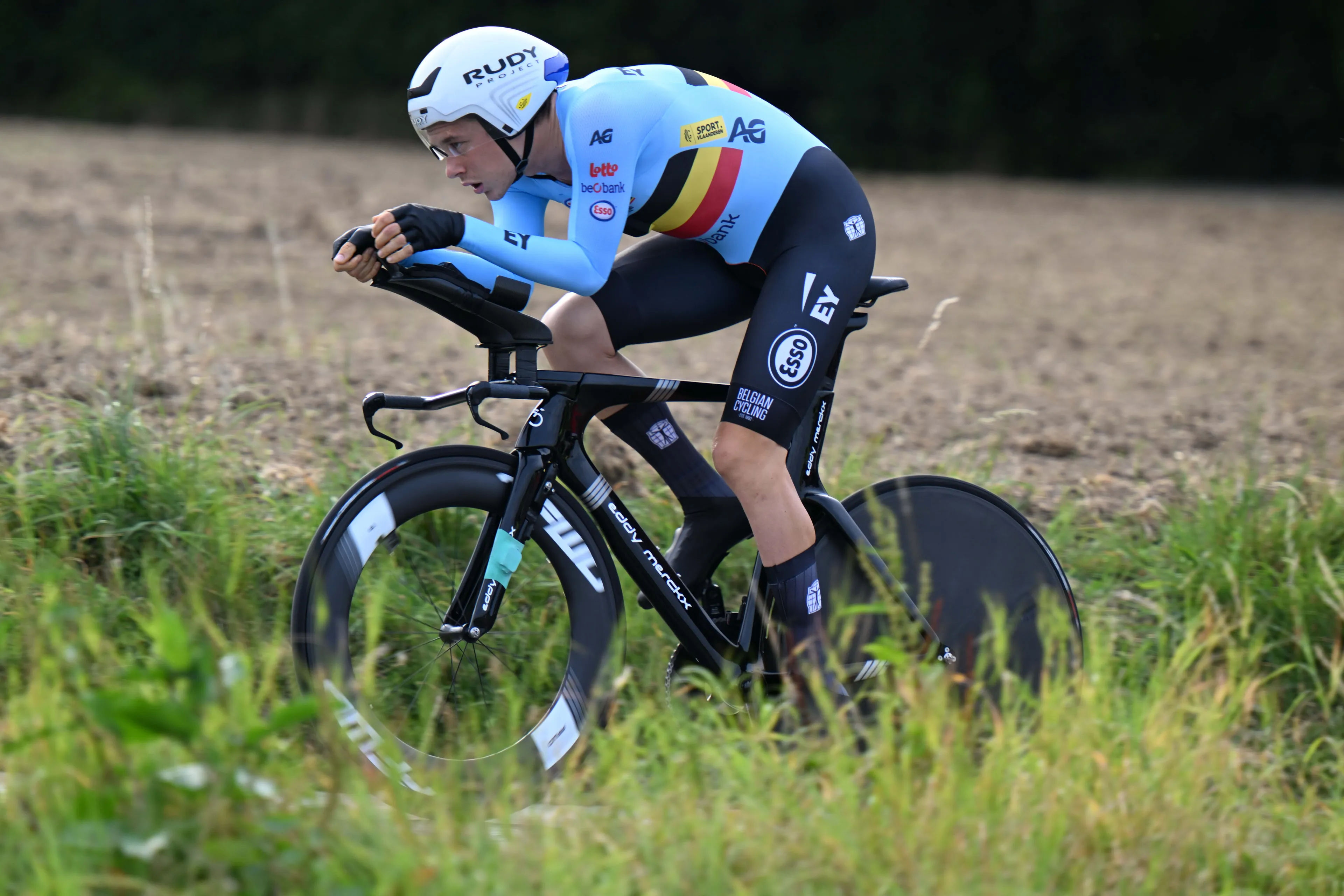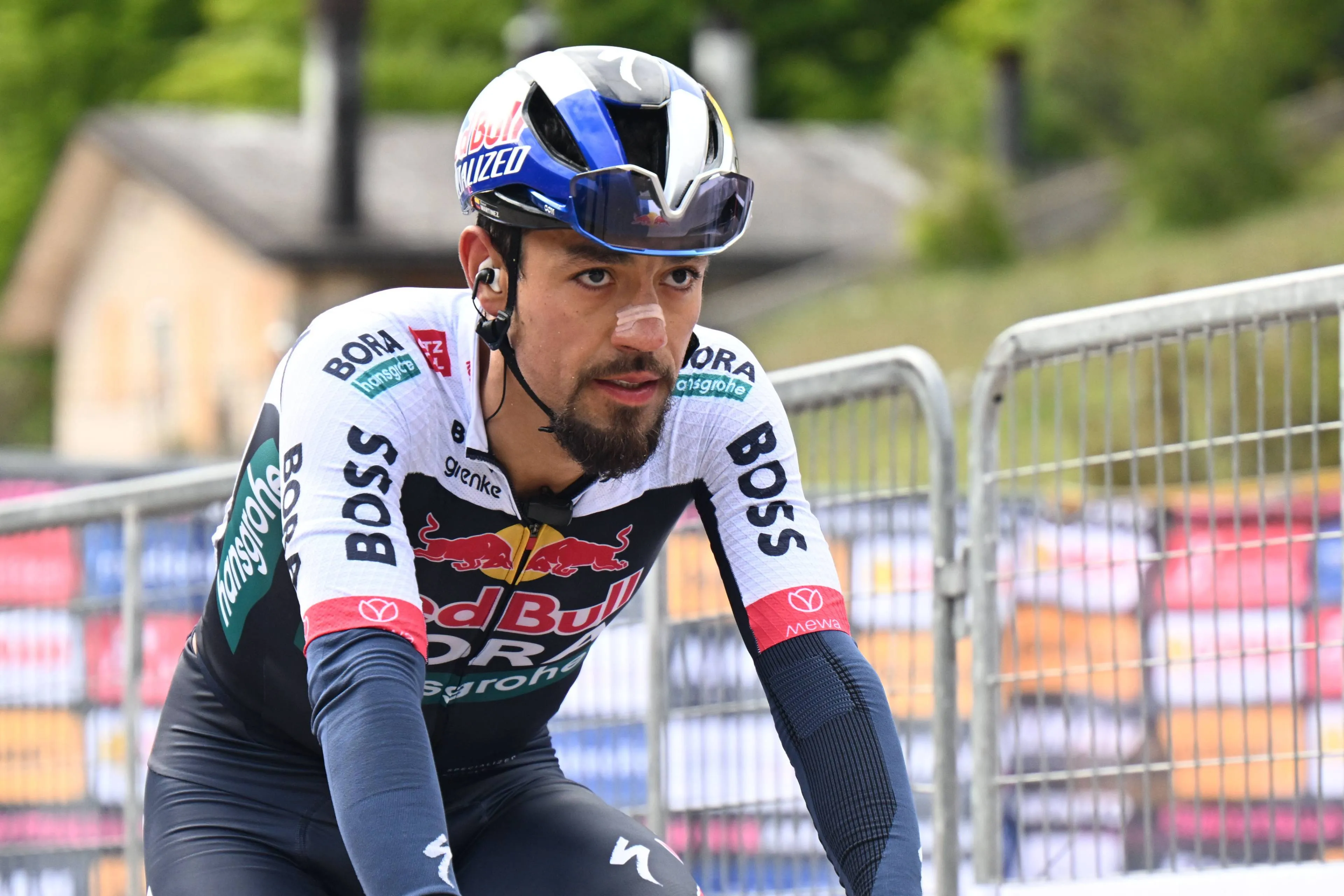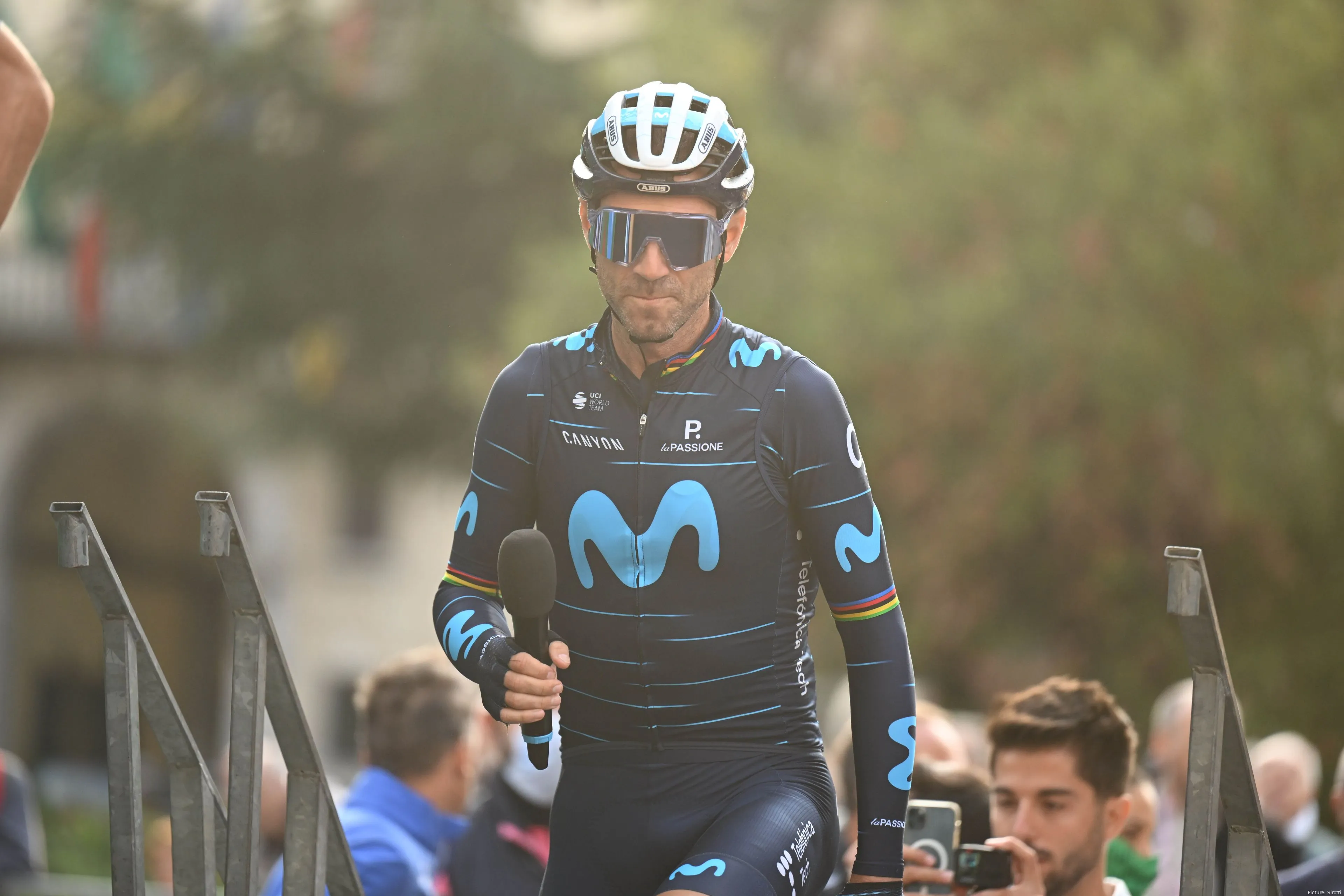
Who is Alejandro Valverde?
Alejandro Valverde is a former professional cyclist who has become one of the most successful in the sport's history, marked by his versatility. The Murcian has completed an impressive career in which he has accumulated no less than 133 professional victories (including a Vuelta a España, innumerable classics, stages in all the Grand Tours, monuments and the World Championships).
Name: Alejandro Valverde
Born: 25 April 1980
Birthplace: Murcia, Spain
Turned Pro: 2002
Height: 1.77m
Born: 25 April 1980
Birthplace: Murcia, Spain
Turned Pro: 2002
Height: 1.77m

Alejandro Valverde
Alejandro Valverde was born on April 25, 1980. In Las Lumbreras, Murcia, he has combined his professional life with his personal life extremely well and now that he is retired he will be able to spend a lot of time with his wife Natalia Mateo and their four children. He raced for Movistar throughout most of his pro career and retired from pro cycling at age 42 in 2022.
He started his professional career in 2002 and from then until 2022 he managed to become the best rider in the UCI classification four times (2006, 2008, 2014 and 2015) and he has accumulated a total of 133 victories with numerous partial victories in the three grand tours, an overall Vuelta, numerous stage races, Spanish championships, all types of classics and, although a bit late, a gold medal in the world championship.
Valverde was gifted at cycling from the beginning of his career. Between the ages of 11 and 13, he won more than 50 races, earning him the nickname El Imbatido. Despite being a youth talent, he did not achieve too many victories during his under 23 years, and despite starting his amateur career with Banesto (now Movistar Team), he began his professional career in 2002 with Vicente Belda's Kelme-Costa Blanca. In his first pro campaign, he did not achieve a single victory, although he did have a number of top-5 finishes that hinted at what was to come.
And it was that in 2003, at the age of 23, he exploded. He took his first pro victory in the Tour of the Basque Country, in the third stage between Plencia and Vitoria on April 9, 2003. And he didn't stop there. He won the Klasika de Primavera a week later and a stage of the Vuelta a Aragón the same month. Then 2 more victories in the Trofeu Joaquim Agostinho and another victory in the GP Villafranca de Ordizia before his second Vuelta a España, in which he literally went off the map with 2 partial victories in High Mountains (Port d'Envalira and La Pandera) and a third place in the overall final. He finished the year with silver in the World Cup in Canada behind Igor Astarloa. The first of many medals for Innsbruck 2018.
In 2004 , he experienced his final season at the Kelme and literally came back out as an established star. He earned 13 victories (including three classifications in Valencia, Murcia and Burgos) before facing his third Vuelta a España. This time he failed to make the podium, but he finished fourth and added another stage to his palmares. In the Verona World Cup, he worked perfectly so that Óscar Freire took the gold and finished seventh. In 2005 he began a relationship with Abarca Sports that he would not give up until his retirement in 2022. He rode in the then Illes Balears-Caisse d'Epargne and won 5 races before he had to ride his first Tour de France, which he left in stage 13 because of a knee problem, but not before winning his first stage in Altiport in an anthological sprint against the then unbeatable Lance Armstrong. In the Madrid World Cup, he could not beat Tom Boonen in the final sprint and had to settle for second silver from him.
The year 2006 would be his first major classics season of his career, with his first victories in the Flèche Wallonne and Liège-Bastogne-Liège. He had to leave the Tour after the third stage and finished second in the Vuelta a España after winning on Alto de El Morredero. He was just over a minute behind Alexander Vinokourov. In the World Championships, to continue his incredible string of podium finishes, he finished third behind Paolo Bettini and Erik Zabel. In 2007 , he finished second in the Flèche Wallonne and Liège and was able to finish his first Tour de France. He did so in sixth position after being very solid in the high mountains. In the World Championships he finished 57th, the worst position of his life. In 2008, he won again in Liège, the Paris-Camembert and finished third in the Amstel Gold Race. He won the overall Dauphine plus two stages and became road champion of Spain for the first time. In the Tour de France, he managed to wear yellow after winning the first stage, won another stage and finished eighth overall. Later, he won his first Clásica de San Sebastián. In the Vuelta, he finished fifth and won a stage. Then he finished 37th in the Worlds: along with the previous year, the only times he did not finish in the top 10.
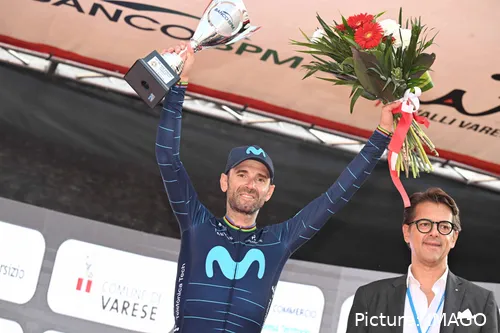
Alejandro Valverde on the podium at the 2022 Tre Valli Varesine
2009 was one of his most important years, winning the general of Castilla y León, Volta a Catalunya, Dauphiné, Burgos and especially the Vuelta a Espana. Something he always aspired to, winning a grand tour. He finished the year ninth in the World Cup. Operation Puerto did not count his 2010 results and he was not allowed to race in 2011. So in 2012 he came back in style already with the Movistar Team name on the team. He won a stage in the Tour Down Under, the Vuelta a Andalucía and a stage in the Tour de France ending in Peyragudes. Then he completed one of the best Vuelta a España of his career, winning three stages, the points classification and finishing second overall to Alberto Contador after the legendary Fuente Dé stage. He returned to the World Championship podium after finishing third behind Gilbert and Boasson Hagen in Valkenburg.
In 2013 , he won the Vuelta a Andalucía again, finished eighth in the Tour de France, second in San Sebastián, third in the Vuelta, second in Lombardy and third at the World Championships. In 2014, he returned to take a walk through the Belgian spring classics, but not before winning again in Andalusia, Murcia, the Miguel Indurain Grand Prix, Roma Máxima and finishing third in Strade Bianche. He won the Flèche Wallonne and finished second in Liège. He became time trial champion in Spain and finished fourth overall in the Tour de France. At the end of the season, he won another San Sebastian and finished third again in the Vuelta after adding two more stages. To finish, he won bronze in the Ponferrada World Cup and finished second in Lombardy. In 2015, he won Liège and Flèche Wallone, finished second in the Amstel Gold Race and was champion of Spain on the road. He then claimed his coveted Tour de France podium and won a stage in the Vuelta before finishing fifth in the World Championships and fourth in Lombardy.
Read also
In 2016 , he won the Fleche Wallonne again and rode Giro (one stage and third place in the final), Tour (sixth place in the final) and Vuelta (12th) for the first time. He did not ride the World Cup and finished sixth in Lombardy. In 2017, he won Murcia, Andalucía, Catalunya, Flecha Wallona and Liège. He crashed in the Tour prologue and bid farewell to the season. In 2018, already 38 years old, he won in Valencia, Abu Dhabi, Catalunya and the Route d'Occitanie before riding the Tour to support Nairo Quintana (he finished 14th and crashed the stages of Quimper and Wall of Britain). In the Vuelta, he finished fifth and won two stages and the green jersey. Then he finally managed to become world champion after his victory in Innsbruck.
He rode the last four seasons of his career with less pressure after winning the rainbow. In 2019 , he won a stage in the UAE Tour and again Occitanie before capturing the Spanish road championship. He finished ninth in the Tour and second in the Vuelta behind Primoz Roglic (plus one stage). He was unable to finish the World Championship due to poor weather conditions and finished the year second in Lombardy. In 2020 , he did not win for the first time since 2002.
He finished 12th in the Tour, 10th in the Vuelta and eighth in his last classification at a World Cup. In 2021, already 40 years old, he won the GP Miguel Indurain, finished third in the Flèche Wallonne, fourth in Liège, fifth in the Amstel Gold Race, won a stage in the Dauphiné. In the Tour, he was disappointing in the Andorra la Vella stage and had to withdraw from the Vuelta. He won a stage in the Giro de Sicilia and finished the year fifth in Lombardy.
In 2022, his final pro year, he started the year with a win in Pollenca and a stage and the final classification of the Gran Camiño, the last victories of his life. He finished second in Strade Bianche, second in the Flecha Wallona, seventh in Liège, 11th in the Giro, 13th in the Vuelta and finished his career with four top 10 finishes in Italy: second in the Coppa Agostini, fourth in the Giro dell' Emilia , third in Tre Valli Varesine and sixth in Lombardy. A total of 133 wins, almost nothing....
In 2023 , Valverde by no means hung up the bike and continued to train as if he were still a pro rider. He won the prestigious Spanish gravel races “La Indomable” and “Ranxo Gravel” and had the gravel world championships in mind. There he showed that he was really still riding at pro level, finishing fourth alongside a contingent of World Tour riders at the age of 43.
In 2024 'Bala' continued to race gravel winning La Indomable World Cup race, one of Spain's most important; and also Castellon Gravel Race. He also became the coach for the Spanish national team.
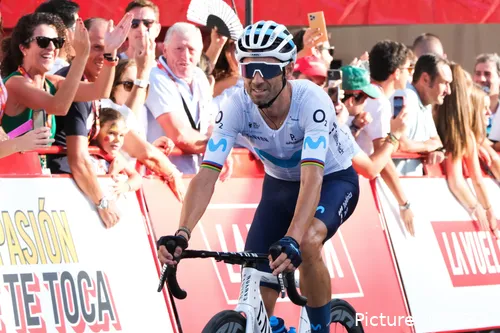
Alejandro Valverde rides alone through the streets of Madrid during the 77th edition of the Vuelta a España, 2022
claps 0visitors 0
Just in
Popular news
Latest comments
- I was going to post the same comment. He just can’t catch a break.Pedalmasher20-02-2026
- Totally agree. This kid has a bright future.Pedalmasher20-02-2026
- The thing is, he never has to worry about his career because he can spend the rest of his life living rent-free in your head.antipodeanpedalfan20-02-2026
- That's true, but you can't count out a resurgence from him later like Vingegaard did in 2025 (although he was 10 seconds behind, not 30)
 Rafionain-Glas19-02-2026
Rafionain-Glas19-02-2026 - Lipowitz ddn't really keep up to the big boys today either.....mobk19-02-2026
- Yes, the guy is no fluke. Even if he fails to improve over the next 15 years he’ll do damage. That young blood is going to keep the establishment working hard.Mistermaumau19-02-2026
- This excuse is harmless, just quaint and amusing. The excuse I really disliked was when he accused a mechanic of improperly adjusting his saddle, endangering the mechanic's job: blaming others for your own limitations is a serious matter.
 maria2024202419-02-2026
maria2024202419-02-2026 - ok so this is impressive - I trashed this guy all winter, get a pro win before the anointing. against a quality field. And Onley and Riccitello look good too. fun to see young blood.mij19-02-2026
- Minor flaws.... thats like suggesting Genghis Khan was a bit aggressive with other countriesslappers6619-02-2026
- Then you carry on if that's what makes you happyslappers6619-02-2026
Loading
Write a comment
